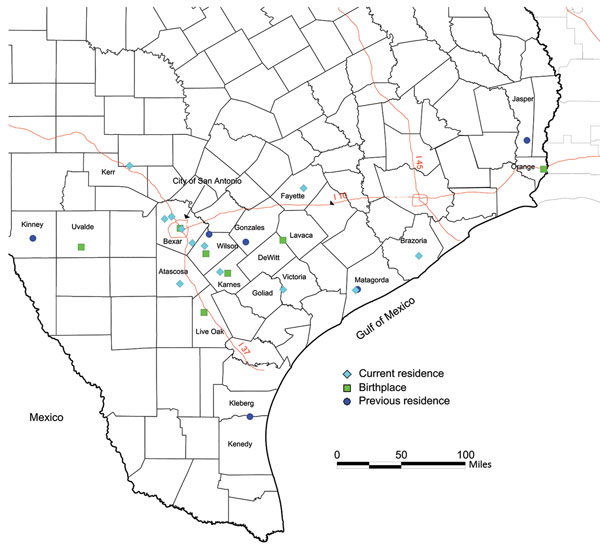Volume 23, Number 3—March 2017
Dispatch
Likely Autochthonous Transmission of Trypanosoma cruzi to Humans, South Central Texas, USA
Figure

Figure. Current and previous residences of persons with likely autochthonous infection with Trypanosoma cruzi, south central Texas, USA, including 11 autochthonous donors with current residence and birthplace. County boundaries are shown. Previous residences in Texas were chosen if the case-patient reported living in the location >5 years.
Page created: February 17, 2017
Page updated: February 17, 2017
Page reviewed: February 17, 2017
The conclusions, findings, and opinions expressed by authors contributing to this journal do not necessarily reflect the official position of the U.S. Department of Health and Human Services, the Public Health Service, the Centers for Disease Control and Prevention, or the authors' affiliated institutions. Use of trade names is for identification only and does not imply endorsement by any of the groups named above.